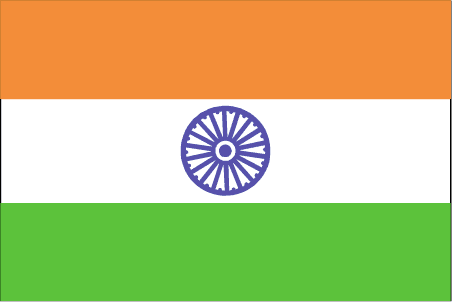Opening up India?
 There is no doubt that India is on its way to becoming perhaps the greates economic presence in the world. However, the great country is not yet open to all kinds of capital inflows to the lament of Jim O'Neill from Goldman Sachs. Note especially the discourse on infrastructure which is very important (I have a post up here as well) and also the retail business is very interesting to follow here; I have reported extensively on this.
There is no doubt that India is on its way to becoming perhaps the greates economic presence in the world. However, the great country is not yet open to all kinds of capital inflows to the lament of Jim O'Neill from Goldman Sachs. Note especially the discourse on infrastructure which is very important (I have a post up here as well) and also the retail business is very interesting to follow here; I have reported extensively on this.
(From Bloomberg linked above quoting Jim O'Neill - bold parts are my emphasis)
'India must open up its markets wider to overseas investors to gain advantage over emerging-market rivals and boost annual economic growth to 10 percent, said Jim O'Neill, chief economist at Goldman Sachs Group Inc.
Asia's fourth-biggest economy expanded 8.9 percent in the three months ended June 30, compared with China's 11.3 percent growth in the same quarter. Prime Minister Manmohan Singh wants to spur growth to 10 percent over a decade by increasing spending on roads, ports and power plants.
``In order to deliver on its potential, it is necessary India undertakes policies to allow more foreign direct investment and probably more interaction in terms of trade with the rest of the world,'' O'Neill said at a conference of money managers in Mumbai today.
India still maintains restrictions on overseas investment in such industries as banking and insurance, where resistance from political parties and labor unions has blocked attempts to raise limits on foreign holdings. The government is yet to lift restrictions on global chains such as Wal-Mart Stores Inc. and Tesco Plc from entering its retail industry.
``India lags quite a bit in relation to other countries,'' said O'Neill, who coined the acronym BRIC for Brazil, Russia, India and China in a November 2001 report titled ``Building Better Global Economic BRICs,''
India's $775-billion economy has expanded more than 8 percent in five of the past six quarters, the second-quickest pace among the world's 20 largest economies.
Singh boosted spending on infrastructure by 25 percent to 992 billion rupees ($21.6 billion) in the year that started April 1. That's still only a seventh of China's investment of $150 billion in public works each year, according to Morgan Stanley.
Deficient Infrastructure
India needs at least $150 billion in investment over a decade, according to Prime Minister Singh, to upgrade its crumbling infrastructure that include dilapidated and inadequate airports that struggle to handle rising air travel and ports that can't cope with increased shipments. Communist allies of his coalition government are opposed to raising overseas investment limits.
Opening up to investors is ``highly important, particularly if the leader of the country keeps raising expectations about this 8-10 percent growth potential,'' O'Neill said. ``It requires a consensus from the population to allow the government to undertake these policies, but it should be relatively straight forward.''
India attracted $10 billion of foreign direct investment in the year ended March, according to Commerce Minister Kamal Nath. China had $60 billion of foreign direct investment in 2005.
The sale of stakes in the nation's two busiest airports at Mumbai and New Delhi was delayed because of political opposition and 10 years of discussions. The government then cut the stake overseas investors can own to 49 percent from the 74 percent that was earlier permitted.
``Infrastructure is going to be an enduring scene, not just in this quarter or the next quarter but for the next five to 10 years,'' said S. Naganath, president and chief investment officer at DSP Merrill Lynch Fund Managers Ltd. who manages the equivalent of $2.5 billion in Indian stocks and bonds. ``If we simply address all the deficiency in infrastructure, this economy can easily grow at 10 to 12 percent.''
Democracy
India has often cited its democratic systems and rule of law as an allure for foreign investors. Democracy and the need to build a consensus may prove to be a disadvantage in making decisions, said O'Neill.
``It is not clear to me, through all stages of development, that being democratic is necessarily an advantage,'' he said. ``It is easier to make decisions in China.''
Still, he predicts that India, by 2050, will be the third- largest economy after China and the U.S. with a gross domestic product of $27 trillion.
``In 20 years, getting to the fifth place is a done deal,'' he said.'